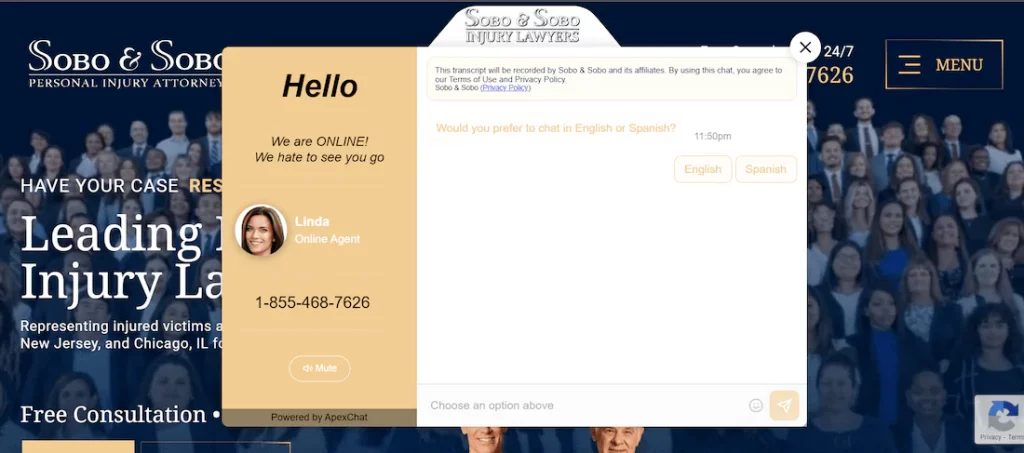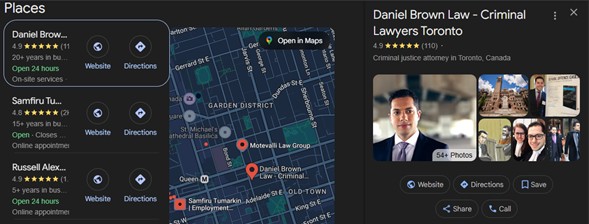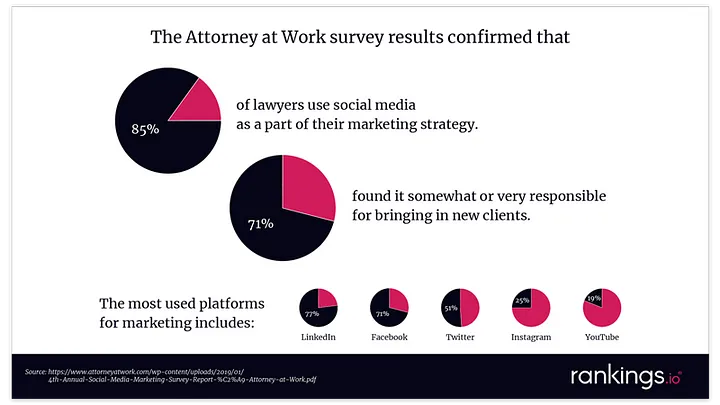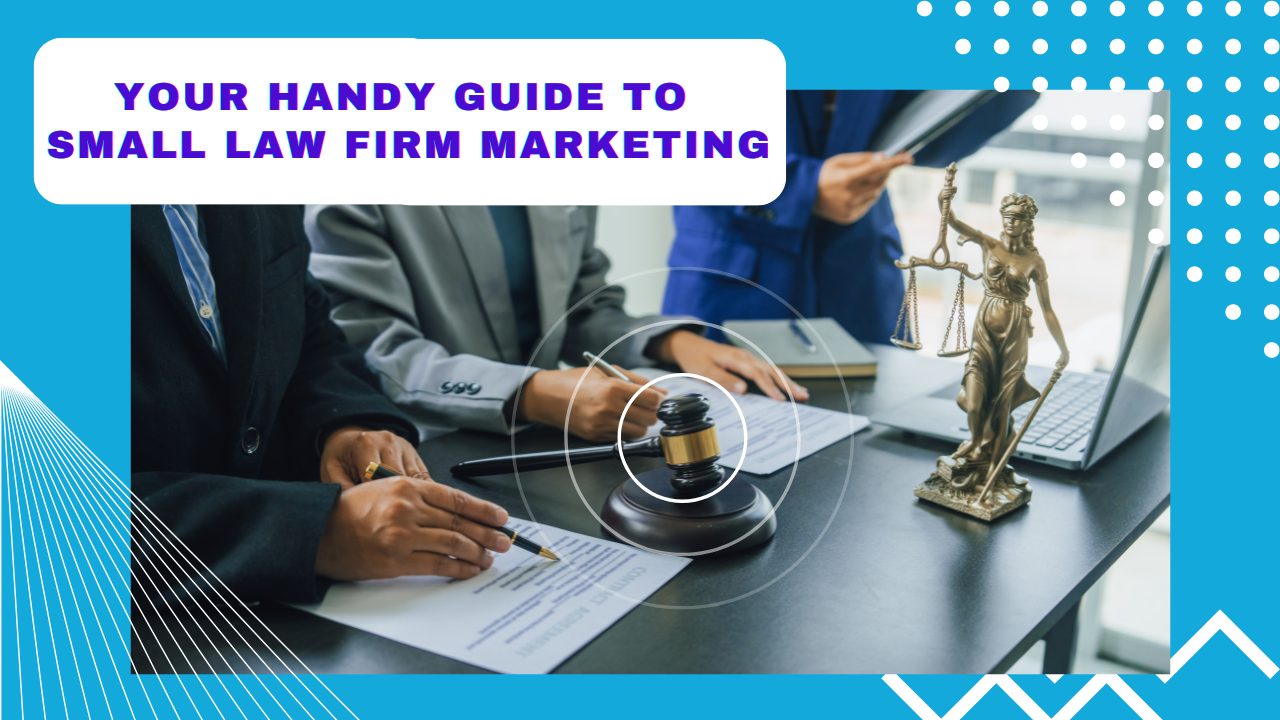How can your small law firm amplify its voice in a crowded market? Mastering effective marketing strategies is key, especially when resources are limited. This guide is your go-to resource, designed to empower small law firms with practical, impactful marketing techniques.
Marketing strategies for small law firms
From budgeting basics to innovative marketing trends, these strategies focus on enhancing the marketing efforts of small law firms. They cover essential areas like budget management, effective advertising, impactful web design, SEO, content creation, social media strategies, and the latest marketing trends.
Let’s dive into the most important aspects you should add to the marketing strategy of your small law firm:
1) Law firm marketing budget

Creating a marketing budget for a small law firm requires careful planning and strategic thinking. Here’s a step-by-step guide to help you allocate your funds effectively:
- Assess Your Financial Situation: Start by evaluating your firm’s overall financial health. Determine how much you can realistically allocate to marketing without impacting essential operations.
- Define Marketing Goals: Set specific, achievable goals. Whether it’s attracting more prospective clients, enhancing your firm’s online presence through SEO, or getting positive reviews, your goals will guide how you allocate your budget.
- Research Costs: Gather information on the costs associated with different marketing strategies. This includes digital marketing strategies like Google Ads, social media platform advertising, and costs for enhancing your website for search engines.
- Track Return on Investment (ROI): Implement tools to measure the effectiveness of each marketing strategy. ROI helps in understanding which strategies work best for attracting satisfied clients and which ones need reevaluation.
- Review and Adjust Regularly: Marketing is not a set-and-forget strategy. Regularly review the performance of your marketing activities. If a particular strategy isn’t bringing the desired results, consider reallocating those funds to more successful tactics.
- Leverage Free and Low-Cost Tools: Utilize free listings in legal directories, engage in social media platforms, and create valuable blog content. These strategies require time more than money and can be highly effective.
- Prioritize Client Relationships: Allocate a part of your budget to maintain relationships with current clients. Satisfied clients often provide the most valuable marketing through word-of-mouth.
- Invest in Professional Help if Needed: If certain aspects of marketing, like SEO or digital marketing strategies, are outside your expertise, consider allocating funds to hire a professional. This can lead to a better return on investment in the long run.
By following these steps, small law firms can develop a marketing budget that is both effective and financially sustainable, ultimately leading to growth and a solid client base.
2) How to advertise a small law firm

Let’s look at how to get the best return on your spending here.
Maximize Free Marketing Tools:
Start by utilizing free marketing options. Claim your listings on legal directories, work towards high ratings on platforms like Avvo, and encourage referrals from past and current clients. This foundational step establishes your online presence without any cost.
Understand Your Audience:
Define your target clients and choose marketing channels accordingly. If your prospective clients are more active on specific social media platforms, such as Facebook, Instagram, or even LinkedIn, focus your efforts there.
Create Educational Content:
Position your firm as a thought leader. Generate educational blog posts, articles, or videos relevant to your target audience and promote them on social media platforms using Meta paid ads. This approach helps in attracting potential and prospective clients seeking legal advice.
Optimize Your Website
A well-designed, search-engine-optimized website is crucial. Ensure your site not only looks professional but also ranks high on search engines to attract organic traffic. We’ll look at this in more depth soon.
Consider PPC Advertising
For immediate traffic, invest in PPC campaigns through Google Ads. Even with a smaller budget, carefully targeted ads can yield a significant return on investment.
Assess and Outsource:
Finally, keep your marketing goals in perspective. If certain aspects, like SEO or content creation, are overwhelming, consider outsourcing. Partnering with a law firm marketing agency might be a strategic move, allowing you to focus on your law practice while experts handle your marketing needs efficiently.
3) Small law firm website design
A website is your window shop and, in many instances, the first time a potential client finds you online. Here are some things to focus on:
Effective CTAs and Legal Services Promotion:
Use clear calls to action on your website to guide visitors towards your legal services. This strategy is pivotal for converting visitors into potential clients.
For a small law firm, effective CTAs could be:
- Free Initial Consultation Offer: “Schedule Your Free Consultation Today!” This CTA can be placed prominently on the homepage, encouraging potential clients to take the first step in discussing their legal needs without any financial commitment.
- Legal Guide Download: “Download Our Free Guide on [Relevant Legal Topic]!” This CTA can be used to offer valuable information in exchange for contact details.
Minimizing Popups for Improved SEO:
Reducing popups enhances user experience, which is a key factor in Search Engine Optimization performance, helping your firm rank higher in organic search.
If you’re going to use popups, make sure it doesn’t open as soon as the user enters the website. A good example of this is Sobo and Sobo, that opens a popup only when the user has spent some time on the page.
Anyone on this page has usually spent some time getting to know your site and is ready to be converted into a client with a popup.

Authentic Visuals for Client Trust:
Authentic imagery resonates more with legal clients, aiding in building a trustful relationship, which is crucial for client acquisition and positive reviews. This means not using stock photos and opting instead for images that show you and your staff.
Customers want to see who they’re dealing with. Like this image taken from Insight Law firm

Clutter-Free Design for Client Engagement: A streamlined homepage invites better engagement, making it easier for potential customers to navigate and understand your legal practice.
Clutter-free and clean designs don’t have to be white and boring, as this striking Home page shows.

Optimizing Load Times for Conversion Rates:
Fast-loading websites improve user experience and conversion rates, essential elements of an effective law firm marketing strategy. It also keeps you in the good graces of Google, who can be very nitpicky about the technical side of sites they like to rank.
Client-Centric Copy for Qualified Leads:
Content that addresses common questions and needs of your ideal clients can lead to more qualified leads and higher click-through rates for your legal marketing strategy.
This valuable content could look something like this:
- Guides on Legal Processes: Articles that explain legal procedures in layman’s terms, like “Steps in a Personal Injury Claim” or “Understanding Your Rights in Family Law Cases.”
- FAQ Sections: A comprehensive FAQ section addressing common queries such as “What to Expect During Your First Legal Consultation” or “How to Choose the Right Attorney for Your Case.”
- Case Studies: Sharing anonymized case studies or success stories, like “How We Won a Complex Property Dispute” or “Effective Defense Strategies in DUI Cases.”
Displaying Testimonials for Credibility:
Including client reviews and testimonials on your website boosts credibility, acting as a powerful marketing tool for your legal services. They could be video or text testimonials, or even both.
Easy Contact Options for Lead Generation:
Simplifying the contact process on your website is vital for effective client acquisition, ensuring potential clients can easily reach your legal team. Have your “Contact Us” tab stuck at the top right or left of all your pages.
Interactive Tools for Engagement:
Tools like case estimators not only engage visitors but also provide valuable insights, enhancing the user experience and supporting your law firm’s marketing plan.
Here’s an example from Crossen Law firm, a site that gives clients an idea of potential settlements:

There is much more that goes into a well-designed and developed website. Behind-the-scenes technical aspects that can improve your user journey, content decisions that can improve your lead generation, and overall more insider knowledge that can give you an advantage over your competitors. After considering these aspects, outsourcing your website design could be beneficial. Professionals can ensure your website is optimized for SEO, user experience, and conversion rates, effectively utilizing your annual marketing budget and aligning with your marketing objectives.
4) Small law firm SEO
SEO is about optimizing your website to rank higher in search engine results. This is especially relevant for small law firms as it helps increase visibility in a competitive market. By improving your ranking, you’re more likely to attract potential clients actively seeking legal services.
Targeted Keyword Research:
Begin with comprehensive keyword research. Small law firms should initially focus on specific phrases like “family law attorney [City]” or highly niched relevant keywords like “DUI lawyer near me” .

Example taken from KWFinder tool in Mangools
Tools like Google Analytics can guide this process, helping identify which keywords drive traffic and leads. Additionally, paid tools like AHrefs and SEMrush are useful too – but both come with pricey subscriptions.
On-Site SEO Optimization:
Enhance on-site elements such as title tags, meta descriptions, and your site’s internal linking structure. This doesn’t just help search engines understand your content; it ensures potential clients find relevant information quickly. Regularly updating content with these targeted keywords keeps your site fresh and relevant.
Local SEO and Google My Business:
Leverage local SEO by optimizing your Google Business Profile. It’s vital for small law firms to appear in local search results, as many potential clients look for legal services in their vicinity.

Example from Daniel Brown Law Google Business Profile
Additionally, ensure your firm is listed in relevant online directories, boosting your local visibility for your target market.
Building a Backlink Profile:
Develop a backlink strategy by securing links from reputable legal directories and local businesses. This not only improves your website’s authority but also aids in organic search rankings.
Measuring Success with Analytics:
Use key performance indicators from Google Analytics to track your SEO progress. This data helps adjust your digital strategy and ensures your marketing dollars are effectively utilized.
A well-established SEO strategy can go a long way. SEO is definitely an ace up your sleeve, a more technical approach that can boost your chances of overcoming your competition through a solid, structured process.
5) Small law firm content marketing

Incorporating high-quality legal content into a small law firm’s content marketing strategy is essential for establishing authority and engaging with potential clients. Here’s a focused approach:
Legal Blog Posts:
Craft blog posts that delve into legal advice and insights specific to your firm’s expertise. For example, a family law firm might publish articles like “Navigating Child Custody: Key Considerations” or “Understanding Alimony in [State]”. These posts should be informative, addressing common legal queries and showcasing your firm’s knowledge.
Engaging Videos:
Develop educational and promotional videos. A criminal defense firm could create videos like “Your Rights During an Arrest” or “The Process of a Criminal Trial”. Videos serve as engaging tools to explain complex legal concepts simply and visually.
Targeted Landing Pages:
Design landing pages for specific legal services. If your firm specializes in estate planning, a landing page might focus on “Estate Planning Services for Young Families” or “Creating Your Will: A Step-by-Step Guide”. These pages help in lead generation and service promotion.
Informative Infographics:
Infographics offer a visual method to convey legal information. They can cover topics like “Timeline of a Personal Injury Case” or “Steps to File for Divorce”. By breaking down intricate legal processes into digestible visuals, infographics can attract a broader audience.
Press Releases and Client Testimonials:
Utilize press releases for firm announcements and integrate client testimonials on your site. These elements enhance credibility and showcase real-world impact and successes.
Service-Oriented Content:
Populate legal service pages with detailed, informative content. For instance, a page on “Immigration Legal Services” should outline different types of visas, application processes, and how your firm assists in these areas.
Additionally:
- You could develop an email marketing campaign to disseminate newsletters featuring the latest posts, legal updates, and client success stories.
- Share your content across social media platforms to increase engagement and reach a broader audience.
6) Social media for small law firms
Speaking of social media marketing, small law firms can harness its power for substantial client engagement and growth. A striking 71% of lawyers acquire clients via social media, highlighting its effectiveness.

(Source = https://medium.com/@Rankingsio/social-media-for-lawyers-814cf5518c1a)
And surprisingly, 31% of lawyers find Facebook most effective for business, even more so than LinkedIn. This underscores the importance of choosing the right platform based on the firm’s target audience and content strategy.

(Source https://www.letamericaknow.com/blog/which-social-media-platforms-are-best-for-attorney)
Other eye-opening stats we discovered:
Firms can build trust and credibility through social media reviews and testimonials, with 25% of potential clients seeking a strong online presence before hiring. The platforms also serve as crucial customer service channels, with 40% of potential clients expecting interaction on their preferred social media channels. Quick, responsive communication on your Socials is also key, as 48% of potential clients prioritize response time.
Here’s our take on each platform:
- LinkedIn: Ideal for business law firms, offering a professional network for content that showcases expertise and industry knowledge.
- Facebook: Widely used, beneficial for reaching a broad audience. Particularly effective for client acquisition and community engagement. Given how nuanced and targeted you can get with Facebook Ads – and given that many of your older potential clients still use it – this would be our first choice if you’re spending some of your budget.
- Instagram & TikTok: Great for visual content. Suitable for showcasing the firm’s personality and providing engaging, informative content. However, while it’s a massively popular platform, this channel is best if your clients are mostly under the age of 30. Let’s say you’re a young, outgoing, and independent lawyer who wants to connect with your audience, in that case, TikTok would be a strong choice.
- Twitter (X): Useful for real-time updates, legal news sharing, and engaging with current legal trends and discussions.
In their social content strategy, small law firms and their marketing teams should focus on educational videos, promotional materials, and service offerings that resonate with their audience. The goal is to create engaging digital marketing efforts, optimizing each social media post to align with the firm’s broader marketing objectives.
This sounds like a lot of work though, right? If you prefer focusing your time on clients, growing your team, and acquiring new customers, you should consider handing this work over to professionals.
7) Law firm marketing trends
Current and future marketing trends for small law firms you should keep an eye on include:
- AI-Enhanced Legal Marketing: Small law firms can utilize AI tools to analyze legal data and automate routine tasks, freeing up time for legal work. This technology helps in offering personalized client experiences and efficient case management.
- Privacy-Centric Marketing: With growing privacy concerns, demonstrating a commitment to client data protection is crucial. Privacy-focused marketing can differentiate small law firms, appealing to clients who prioritize data security.
- Video Marketing: Increasingly popular, video marketing like explainer videos or attorney interviews, allows small law firms to effectively convey their expertise and humanize their brand, enhancing client engagement and trust.
Looking for a marketing service for your small law firm?
Navigating the complexities of marketing a small law firm can be as intricate as a legal case itself. With limited resources, it’s crucial to ensure every marketing dollar counts. That’s where Nomadic Advertising’s specialized law firm marketing services come into play.
Like a skilled attorney crafting a winning case, we meticulously tailor marketing strategies to suit the unique needs of your law firm. To discuss a custom marketing approach that aligns with your firm’s objectives, consider scheduling a FREE 30-minute strategy session with us. Let’s collaborate to build your company’s success story!





